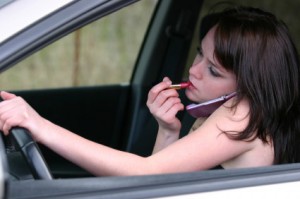Road Traffic Driving Offences
Solicitors who deal with general criminal law won’t always know the ideal legal arguments that can be used to defend your case if you have been accused of any of the driving offences below;
Failure to name the driver
After a driving offence, you will be sent a S172 request. If you do not complete and return the form you will be liable for six penalty points.
S172(4) and S172(7)(b) RTA 1988 are the only two ways to defend this motoring offence.
To satisfy the court, you need to show that you used reasonable diligence to establish the driver at the time of the offence, or that you didn’t receive the section 172 ID request.
Motoring Insurance Driving Offences
The circumstances or your reasons for driving without motor insurance are not taken into account when you are stopped driving, and you are assumed to be guilty of the offence.
The penalty for this offence is six to eight penalty points on your licence.
Many people find that their insurance policy was cancelled without them being informed.
It is possible to have success in court using a special reasons argument if you can show that you honestly believed that you had insurance cover in place.
Speeding Road Traffic Offences
The penalty for speeding is 3 – 6 penalty points, a driving ban if warranted by your offence, costs as well as a fine.
Recent UK case law makes it very complicated to contest speeding offence allegations without expert evidence.
Many motorists face totting up bans for accumulating 12 points or more from speeding offences. Totting up doesn’t automatically mean that you will be banned from driving however as you can use an ‘exceptional hardship’ defence to keep you licence in spite of having 12 points on your licence.
You will need to ask a motoring solicitor to prepare a suitable exceptional hardship defence for your specific circumstances.
Drink Drive Road Traffic Offences
The drink drive limit in the UK is 35mg in breath. A drink driving conviction involves a minimum mandatory driving licence disqualification of one year.
The three defences for drink drive are that you were not the driver of the car at the time, you were not driving in a public place, or that you didn’t drink until after you had finished driving.
In certain emergency situations, or if you didn’t know you consumed alcohol and were oblivious to the fact that you had done so, you may also escape a disqualification.
Drunk in Charge Related Motoring Offences
To be convicted of being drunk in charge of a vehicle, the prosecution need to show that you were in fact above the legal drink driving limit and that you were the person in charge of the motor vehicle at the time.
A common defence to this allegation is to prove to the court that you were not intending to drive until you were under the drinking and driving limit again.
If you are proven guilty of this offence, you will receive a mandatory either ten penalty points on your licence and a possible discretionary ban.
Caught Driving with a Mobile Phone
In order to be guilty of the offence, you need to be holding a mobile phone while using it.

Many Magistrates Courts view mobile use while driving differently.
You are still considered to be driving even when stationary at junctions or in a temporary hold up. If your engine is running, you are ‘in control’ of the vehicle.
Texting while driving is a growing menace on the roads and has been responsible for many injuries and deaths. Mobile phones provide a massive distraction to drivers and so it is not surprising that the police want to clamp down on dangerous use of the devices on our roads. Patterson Law, UK Texting while driving offence lawyers.
Driving Without Due Care and Attention
The standard of your driving must be proved beyond reasonable doubt by the prosecution to have dropped below the standard of a competent and careful driver in order to convict you of driving without due care and attention.
Low speed car park scrapes as well as undertaking offences are good examples of offences covered by driving without due care and attention.
Many drivers receive an offer from the police to attend a Driver Improvement Course instead of attending court and facing prosecution for the offence.
Fail to Report
You are required by law in accordance with Section 170 of the RTA 1988 to stop and offer your details following an accident if there was damage to a person, another vehicle or to property.
If it wasn’t possible to exchange at the time of the accident, you have up to twenty four hours in which to report the accident to the police.
If you go to court and are found guilty of failing to report or failing to stop then you face 5 to 10 driving penalty points or a discretionary ban.
If you can demonstrate that you didn’t know that damage had been caused and that it was reasonable that you weren’t aware that you’d had an accident then you have a legal defence.
These road traffic offences are otherwise known as hit and run and are considered serious by Magistrates Courts.
Dangerous Driving Road Traffic Offences
In order to be convicted of dangerous driving, your standard of driving has to be shown to have fallen below what is reasonably required, but also, it must also be clearly obvious to a competent and careful driver that the driving is dangerous.

The courts take dangerous driving offences seriously, meaning that it carries a minimum 12 month licence disqualification, which includes a complete driving licence re-test in order to regain your licence, as well as a potential prison sentence for more serious cases.
Driving without a Licence
This offence causes confusion.
Driving not in accordance with the conditional limitations of your current driving licence is the biggest cause of this offence, for example, not displaying L plates if you are a learner and have yet to pass a driving test. This would be an endorsable offence.
If for example you have been requested by the DVLA to return your licence & they elect to suspend your entitlement to drive, it is non-endorsable as an offence.
Many people believe that ‘no licence’ means that your motor insurance is null and void, but that is not the case.
Court Prosecution teams are often wrong on the issue as to whether no licence driving offences carry penalty points – so request expert guidance from a trusted motoring solicitor if you are charged.